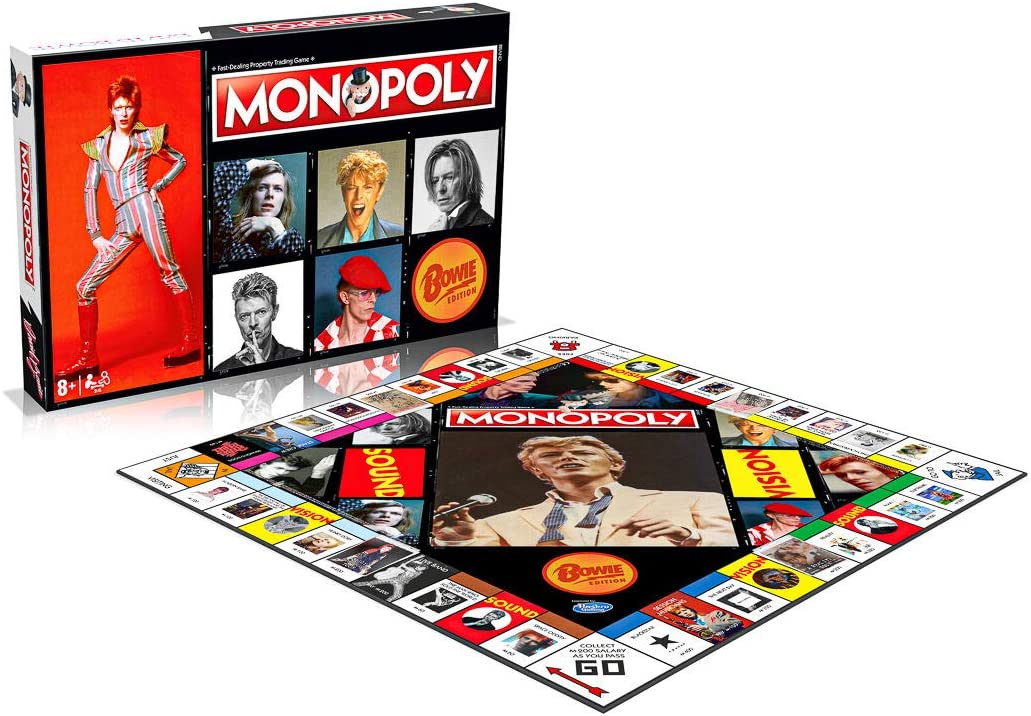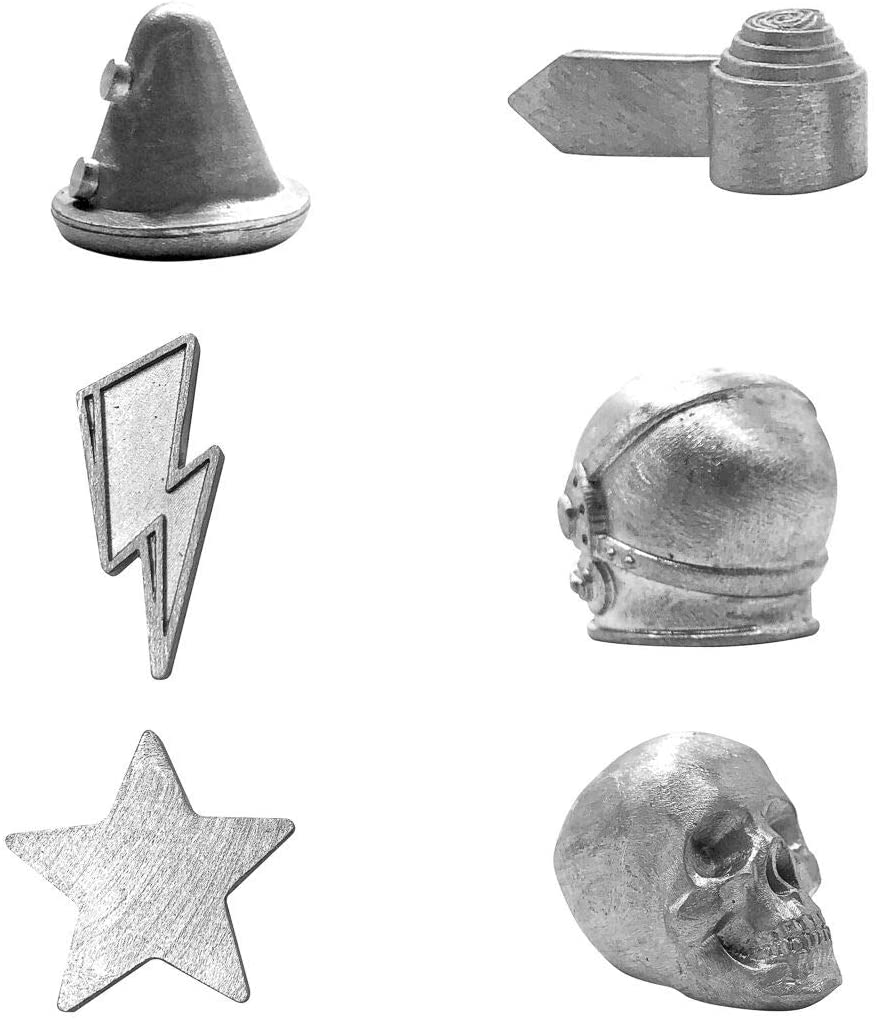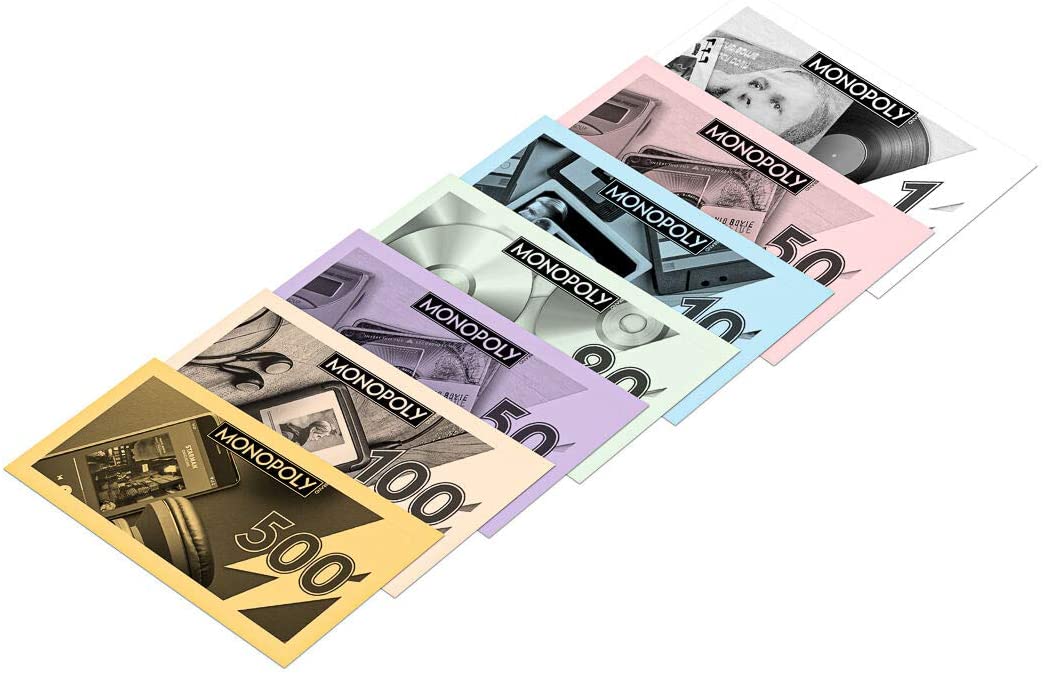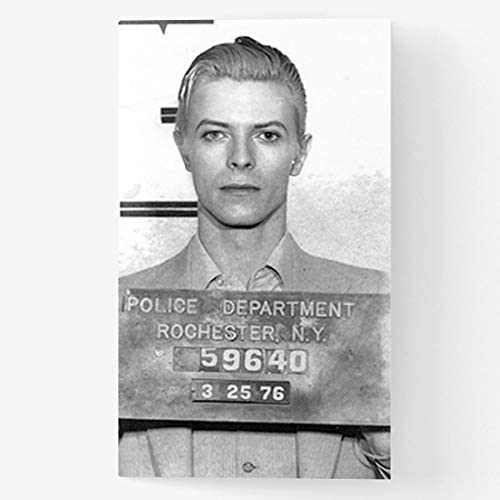
Another way to pass the time while we’re snuggled in, awaiting the arrival of a vaccine: David Bowie Monopoly.
Gone are the thimble, the top hat, the old boot and other iconic game pieces you may remember from your childhood or rainy days in seaside holiday rentals.
This special edition replaces them with 6 major Bowie signifiers: a star, a skull, a Pierrot hat, a rolled up tie, a space helmet, and a lightning bolt.

Monopoly has previously catered to music fans with sets devoted to AC/DC and the Rolling Stones, but Bowie’s chameleonic quality and highly developed aesthetic sense ensures that this one’s ephemera will appeal to all factions of the Bowieligious, not just those with the patience for a long board game.
Forget about Boardwalk and Marvin Gardens. Instead of real estate, the perimeters of the board feature albums from Bowie’s enormous catalog.
Secure albums to begin erecting stages and stadiums that other players will have to “rent” when they roll into town.
The Chance and Community Chest decks have also undergone some ch-ch-changes. Players now draw Sound and Vision cards which have the capacity to “open doors, pull some strings or bring the stars crashing down.”

Collectors will find that this set‘s paper money pairs nicely with the souvenir Metrocards from Bowie’s posthumous 2018 takeover of a New York City subway station.
The four cornerstones of Monopoly—GO, Free Parking, JAIL, and Go to Jail—remain faithful to the original, leaving some fans opining that an opportunity was missed:

When you weary of David Bowie Monopoly, you can play a couple hands of Bowie, a free downloadable card game that can be printed at home:
Each player will play David Bowie, or more accurately, a persona of David Bowie. The object of the game is to achieve the greatest legacy of any Bowie and survive the 1970’s. Legacy is judged by points earned from cutting records (flat, black, round- oh, nevermind). There is one slight problem. The Bowies are endangered by various threats, dark princes, and figures of the occult (which is in no way related to the copious amount of cocaine being inhaled by our hero). If any Bowie dies, all Bowies are dead and the game is lost.
There’s also Bowie’s appearance in the 1999 video game, Omikron: The Nomad Soul:
David Bowie Monopoly is available for purchase here.
via Dangerous Minds
Related Content:
David Bowie’s Rise as Ziggy Stardust Documented in a New 300-Page Photo Book
When David Bowie Launched His Own Internet Service Provider: The Rise and Fall of BowieNet (1998)
Ayun Halliday is an author, illustrator, theater maker and Chief Primatologist of the East Village Inky zine. She most recently appeared as a French Canadian bear who travels to New York City in search of food and meaning in Greg Kotis’ short film, L’Ourse. Follow her @AyunHalliday.
The David Bowie Monopoly Game Is Here: Advance to GO and Collect 200 Hunky Dorys! is a post from: Open Culture. Follow us on Facebook, Twitter, and Google Plus, or get our Daily Email. And don't miss our big collections of Free Online Courses, Free Online Movies, Free eBooks, Free Audio Books, Free Foreign Language Lessons, and MOOCs.
from Open Culture https://ift.tt/2MectC4
via Ilumina

Comments
Post a Comment